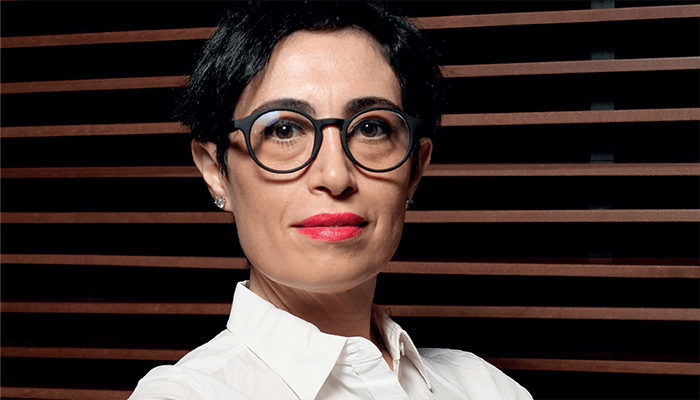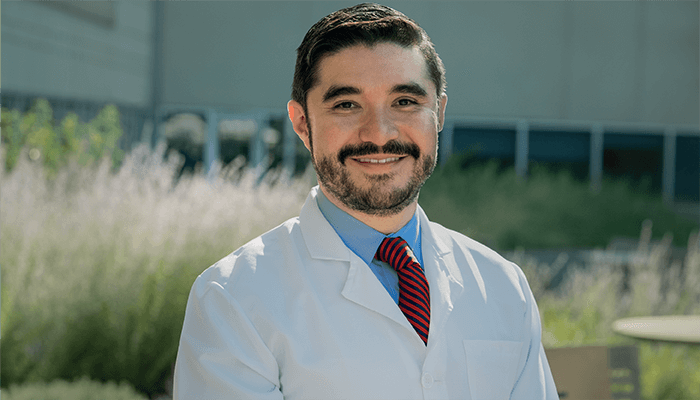Those of us who grew up in the 1990s will recall the phenomenon of the elusive, red-stripe-clad puzzle book character, called Waldo (or Wally, as he is known in many other countries outside the US). We spent hours seeking him out among the chaotic illustrations chock-full of red herrings. Look-alikes thwarted us as the real Waldo, carefully camouflaged, seemed impossible to spot. Today, the phrase Where’s Waldo? remains pertinent to the challenge of finding eligible patients for oncology clinical trials.
More than 18 million Americans have been diagnosed with cancer in the past decade, according to the American Cancer Society (1). This is – by any measure – a staggering figure. Even with the recent Centers for Disease Control and Prevention infusion of US$215 million as part of a five-year US$1.1 billion grant to fund the first year of three national programs to improve cancer prevention, detection, diagnosis, and control, investment is still not being directed to fix the most fundamental problems in cancer research (2).
In particular, one huge roadblock to a cancer cure is the struggle to recruit patients for oncology trials. Approximately 80 percent of clinical trials fail to meet enrollment timelines. Two-thirds of oncology trials fold before meeting their goals due to a lack of patients, and less than five percent of adult cancer patients participate in clinical research (3). A startling analysis from the National Cancer Database (NCDB) reveals that less than 0.1 percent of cancer patients participate in a clinical trial (4) – a trial that may hold the potential for better quality of life or even survival itself.
These sobering statistics are symptoms of a clinical research system that lacks the tools, transparency, and trust required to give hope to more cancer patients. Overcoming this biggest of obstacles is well overdue. We need to make it much easier to find Waldo.


Many obstacles hindering cancer trial enrolment
As science propels cancer treatments forward, clinical trials are increasingly designed around very small, genetically defined subsets of cancers, which, at certain stages, make finding eligible patients difficult. Researchers are tasked with enrolling patient populations that reflect the diversity of cancer demographics, further complicating patient identification. In addition, oncology trials typically require patients to have relapsed/refractory disease after standard cancer treatments at least twice before they’ll be considered – in one trial, patients must have received at least three other therapies before becoming a candidate for a renal cell carcinoma trial (5).
If a patient makes it past these early hurdles, they’ll find that pre-screening is strict. A recent study found that roughly 80 percent of patients with advanced non-small-cell lung cancer did not meet the criteria for the trials included in the study. As a result, 86 percent of those trials failed to complete recruitment within the targeted time (6).
Oncology trials are notoriously stringent in their inclusion criteria. In fact, 40 percent of patients with cancer trials available to them are not eligible to enroll, according to an industry report. Although these criteria are intended to ensure patient safety and create a homogenous study cohort, some industry leaders question whether cancer trial criteria are too rigid. In that same report, the US National Cancer Institute (NCI) concluded that clinical trial eligibility criteria arbitrarily eliminate patients and should be simplified and relaxed. Eligibility criteria, such as age, HIV status, the presence of previous cancers, and other criteria are being re-examined to ensure that restrictions are not unnecessarily preventing willing patients from enrolling in trials (7).
To make matters worse, many patients do not know what trials exist, how to find them, and how to determine their eligibility. Even some oncologists remain woefully unaware unless the trial is happening at their own medical site.
In addition to challenges in finding appropriate patients, two key problems exacerbate the difficulty of matching cancer trials to patients: flawed databases and disparate medical records. Electronic medical records are siloed and plagued with errors, and the process of extracting and ensuring the accuracy of information remains manual and time-consuming.
Many will agree that the de facto US database ClinicalTrials.gov is neither thorough nor easy to use. Although the database can be a powerful tool for finding trials and results reporting, it does not contain all clinical trials in the clinical research enterprise (8). Trial sponsors are responsible for updating information with little oversight by regulators, which can lead to delays and missing information. Furthermore, the database still uses industry-specific nomenclature that is difficult for patients without research experience to understand. And, although other patient advocacy group websites and larger medical centers manage newer repositories for clinical trials, these are often focused on specific cancer types or locations, which exacerbates the fragmentation of clinical trials information.
Fundamental change is daunting without better access to real-time trial availability, criteria, and reasons for exclusion, which in turn will build trust in a system that most patients see as shrouded in mystery.
A Case Study: Technology in action
Modern technology is available to help overcome these challenges and is poised to revolutionize clinical trial recruitment.
In 2020, the National Cancer Institute (NCI) sponsored an oncology-based, clinical trial recruitment tool called a Deep Learning Clinical Trial Matching System (DLCTMS) (9). With the partnership and support of Columbia University, NCI used this software platform to optimize patient matching beginning with three trials within its National Clinical Trials Network.
Specifically, sponsors leveraged the DLCTMS to digitize all inclusion/exclusion criteria, each with multiple arms and multiple biomarkers. The system was then used to help analyze all potential barriers to enrollment and extracted patient-level data to allow for more in-depth, objective pre-screening in real time.
“Ultimately, our goal is to enroll as many patients as possible in potential clinical trials,” said Richard D. Carvajal, Associate Professor of Medicine at Columbia University Vagelos College of Physicians and Surgeons and Director of Experimental Therapeutics at Columbia University Irving Medical Center. “This AI-enabled Deep Learning Clinical Trial Matching System platform is a promising solution to advance cancer clinical trial patient identification and matching.”
Results to date in this ongoing study show a dramatic transformation from a fully manual, time-consuming, and error-prone set of steps into an automated and optimized digital process for active enrollment to institutional cancer clinical trials. The platform’s built-in artificial intelligence technology streamlined the process, while improving patient participation and outcomes.
Nurses previously spent an average of 45 minutes per patient combing through criteria to select a potential trial. The new system slashed the time to 17 seconds to screen not just one but dozens of trials. Additionally, the process of moving a patient from initial identification to consent and enrollment was streamlined from as long as 48 hours per patient to mere minutes. (This study is ongoing, see Small Business Innovation Research [SBIR] Contract No. 75N91020C00016.)
Within six months for a sample patient population, the DLCTMS helped NCI match patients to more than 111 studies with a 90 percent success rate. Since then, this technology has helped match patients to an additional 213 studies in mere fractions of traditional matching times.
The trust imperative in oncology research
The NCI’s encouraging results demonstrate how modern technology can drive wholesale changes in trust and transparency that today’s oncology research landscape needs. Without such technology and patient support services, connecting the right cancer patients to the right trials at the right time is like an exasperating Where’s Waldo puzzle – but with heart breaking consequences. It’s time for change.
It will take a broad and comprehensive effort to solve this issue. And it will also take time and demand new ways of working. But if all players in the clinical trials ecosystem – patients, providers, sponsors, payers, sites, and research organizations – center their efforts around the patient, we can transform oncology clinical trials and usher in a new era of trust in research.
References
- KD Miller et al., “Cancer treatment and survivorship statistics,” CA: A Cancer Journal for Clinicians (2022). DOI: 10.3322/caac.21731.
- Endpoints News, “Moonshot Refresh: Biden calls to cut cancer death rate by at least 50% in next 25 years” (2022). Available at: https://bit.ly/3ERcGnV.
- Joseph Unger et al., “The Role of Clinical Trial Participation in Cancer Research: Barriers, Evidence, Strategies,” American Society of Clinical Oncology Educational Book, 36 (2022).
- Nicholas Zaorsky et al., “Clinical Trial Accrual at Initial Course of Therapy for Cancer and its Impact on Survival,” Journal of the National Comprehensive Cancer Network, (2019). DOI: 10.6004/jnccn.2019.7321
- American Association of Cancer Research, “Noted This Week” (2022). Available at: https://bit.ly/3MADg6L
- Liu Ruishan, et al., “Evaluating Eligibility Criteria of Oncology Trials Using RWD and AI”, Nature 592, 629-633 (2021). DOI: 10.1038/s41586-021-03430-5.
- The American Cancer Society Cancer Action Network, “Barriers to Patient Enrollment in Therapeutic Clinical Trials for Cancer,” Industry Landscape Report (2018). Available at: https://bit.ly/3g6O1Bn
- Tony Tse et al., “How to avoid common problems when using ClinicalTrials.gov in research: 10 Issues to Consider,” The BMJ, 361 (2018). DOI: 10.1136/bmj.k1452
- Massive Bio, “Massive Bio Has Been Awarded a Contract by the NCI to Develop an Oncology Based Artificial Intelligence-Enabled Clinical Trial Recruitment Tool,” (2020. Available at https://bwnews.pr/3TqLO25




